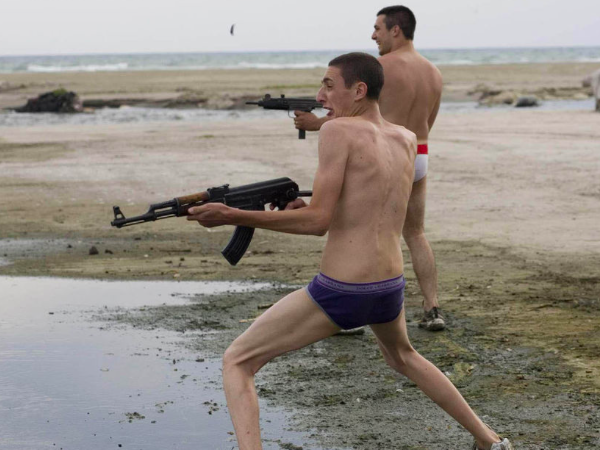I’m currently reading Roberto Saviano‘s bestseller Gomorra, a book that delves into the organised crime system created in Scampia, Napoli. A structure that fed itself on social struggles to grow and become stronger. The state of despair drives people to the mafia. It is the only way they can survive.
A forgotten corner of Napoli, where unemployment is sky-high and criminal records are as long as the Holy Scriptures. Fertile land for budding criminal clans.
Saviano, who still lives under strict police security, recounts both the violence and even more importantly the system. It takes the reader into the streets and homes of Naples and unveils the misery unemployment brings to whole neighbourhoods. It shows how the Mafia clans provided their ‘friends’ with jobs and opportunities.
The clans created an economic structure that provided work in a region forgotten by the central government. They created business opportunities and liquidity to local entrepreneurs. The ‘sistema’ ensured that loyal members and their families were well cared for.
A system that gives people hope through its brutal violence. A structure, that during the past 40 years, transformed itself into a principal pillar of the region’s economy. A parallel form of government which was not at war with the State. Instead it catered for the needs of people who were invisible to the State.
In Malta, although, we have seen Italian organised crime infiltrating the digital gaming sector, I don’t believe Gomorra-style systems exist.
But in our towns and villages everybody knows who to go to if they require a referral for a job, an appointment at hospital or planning permit. Everybody knows that if people require anything they have to approach a political party.
In the main, Malta has three types of corruption. The minor corruption at individual level. When one solicits the help of politicians since they can’t go through the civil service’s bureaucracy, such as moving forward a hospital appointment, gaining a permit or license without fulfilling all criteria and asking for a job, or if you’re lucky a position of trust.
The political parties have created a system where the most vulnerable in society become dependent and obliged towards politicians. A system in which ministers dish out jobs and favours.
A system accepted by society. In Malta, people do not go to constituency offices to volunteer in some political campaign but to ask for something.
It becomes even worse when the politicians put on the entrepreneurial mask and mingle with the local business community. If one pledges the allegiance to one politician they’re given ample opportunities to make money through tenders, grants and other ingenious mechanisms designed to make a quick buck.
The system goes beyond this level and reaches further up the ladder of power. The stakes are higher, making the circle of smaller but with the same ambition; that of a making a quick buck in Malta or abroad.
In the meantime, political parties have thought the people not to think much. A system devised to simultanously cater for the needs of the most vulnerable and that of big global players, international banks and unknown investors.
It seems quite true at the end. What in Sicily is known as Cosa Nostra, what in Calabria is known as Ndrangheta, what in Naples is called Camorra, in Malta we call ‘il-gvern’.













